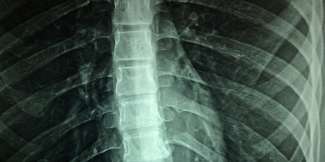Medical Xpress news

Medical Xpress / Disappointment alters brain chemistry and behavior, mouse study shows
From work meetings to first dates, it's essential to adjust our behavior for success. In certain situations, it can even be a matter of life or death. So how do we switch our behavior when situations change?

Medical Xpress / Observing synapses in action: Images capture real-time neurotransmitter release
It takes just a few milliseconds: A vesicle, only a few nanometers in size and filled with neurotransmitters, approaches a cell membrane, fuses with it, and releases its chemical messengers into the synaptic cleft—making ...

Medical Xpress / Engineered dendritic cells boost cancer immunotherapy
EPFL researchers have successfully engineered cells of the immune system to more effectively recognize cancer cells. The work, covered in two papers, turns the previously lab-based method into a full-blown immunotherapy strategy.

Medical Xpress / Learning to play music can improve older people's brain function, study suggests
Improvising music could help to improve older people's cognitive skills, such as learning and memory, according to research from the University of Sheffield and Western Sydney University.

Medical Xpress / Brain on jazz: Musical improvisation moves beyond pure inspiration to dynamic reconfiguration
An international research team investigated the brains of 16 jazz pianists while they played a piece from memory, improvised based on the melody, and freely improvised based on the chord changes. The analysis of how different ...

Medical Xpress / A built-in odometer: New study reveals how the brain measures distance
Whether you are heading to bed or seeking a midnight snack, you don't need to turn on the lights to know where you are as you walk through your house at night. This hidden skill comes from a remarkable ability called path ...

Medical Xpress / How an antiviral defense mechanism may lead to Alzheimer's disease
One of the main proteins that contributes to Alzheimer's disease is called phospho-tau (p-tau). When p-tau gets too many phosphate groups attached to it (a process called hyperphosphorylation), it starts to stick together ...

Medical Xpress / New evidence about dopamine delivery explains why current Parkinson's treatments succeed—and their limitations
A McGill-led study is challenging a popular theory about how dopamine drives movement, a discovery that could shift how scientists think about Parkinson's disease treatments.

Medical Xpress / Alzheimer's disease more prevalent in older people than previously thought
New research, published in Nature, has provided the first ever population-based data on the frequency of Alzheimer's disease neuropathological changes (ADNC)—a key causal factor behind the development of dementia—and ...

Medical Xpress / Astrocytes found to aid spinal cord repair by signaling immune response
Cedars-Sinai investigators have discovered a healing mechanism that could one day be harnessed to help treat patients with spinal cord injuries, stroke, and neurological conditions such as multiple sclerosis. Their study, ...

Medical Xpress / How disabling one gene protects mice against Type 1 diabetes
Scientists at the University of Wisconsin–Madison have uncovered a possible way to protect key cells in the pancreas that are targeted during the development of Type 1 diabetes.

Medical Xpress / Microbiome may aid in healthy pregnancies by training maternal immune system
Gut microbes may play a key role in training a mother's immune system to adapt to the developing fetus during pregnancy, according to a preclinical study by Weill Cornell Medicine investigators.